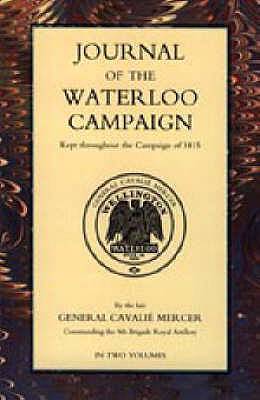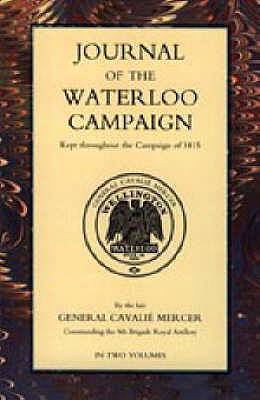
Door een staking bij bpost kan je online bestelling op dit moment iets langer onderweg zijn dan voorzien. Dringend iets nodig? Onze winkels ontvangen jou met open armen!
- Afhalen na 1 uur in een winkel met voorraad
- Gratis thuislevering in België vanaf € 30
- Ruim aanbod met 7 miljoen producten
Door een staking bij bpost kan je online bestelling op dit moment iets langer onderweg zijn dan voorzien. Dringend iets nodig? Onze winkels ontvangen jou met open armen!
- Afhalen na 1 uur in een winkel met voorraad
- Gratis thuislevering in België vanaf € 30
- Ruim aanbod met 7 miljoen producten
Zoeken
€ 30,95
+ 61 punten
Uitvoering
Omschrijving
The author of this book was commander of 'G' Troop, Royal Horse Artillery, in Wellington's army, who jotted down notes on the events of the day each evening. It is an account of what he saw and felt from leaving Colchester for Belgium on 8 April 1815 to his final return to England at the end of January 1816. It is a remarkable and compelling account, especially of the three days which ended the career of Napoleon. Mercer's troop was at Quatre Bras, where he got off a few rounds at Napoleon himself, and at Waterloo. There are graphic descriptions of the battles and of his tour over the battlefield the day after, with its appalling scenes of carnage and the sight of the locals looting the dead, and the not-quite dead. It is an outstanding example of the literature of the Napoleonic wars, and it has a rarity as the memoir of an artillery officer, and a troop commander at that.
Specificaties
Betrokkenen
- Auteur(s):
- Uitgeverij:
Inhoud
- Aantal bladzijden:
- 738
- Taal:
- Engels
Eigenschappen
- Productcode (EAN):
- 9781843425571
- Verschijningsdatum:
- 26/10/2016
- Uitvoering:
- Paperback
- Formaat:
- Trade paperback (VS)
- Afmetingen:
- 199 mm x 151 mm
- Gewicht:
- 798 g

Alleen bij Standaard Boekhandel
+ 61 punten op je klantenkaart van Standaard Boekhandel
Beoordelingen
We publiceren alleen reviews die voldoen aan de voorwaarden voor reviews. Bekijk onze voorwaarden voor reviews.











